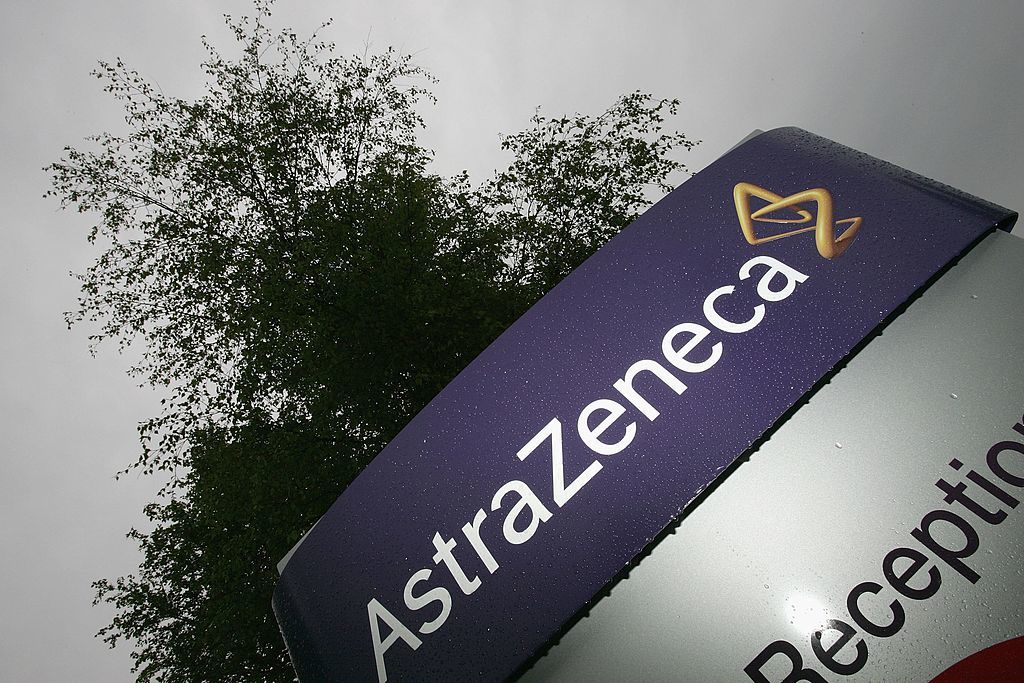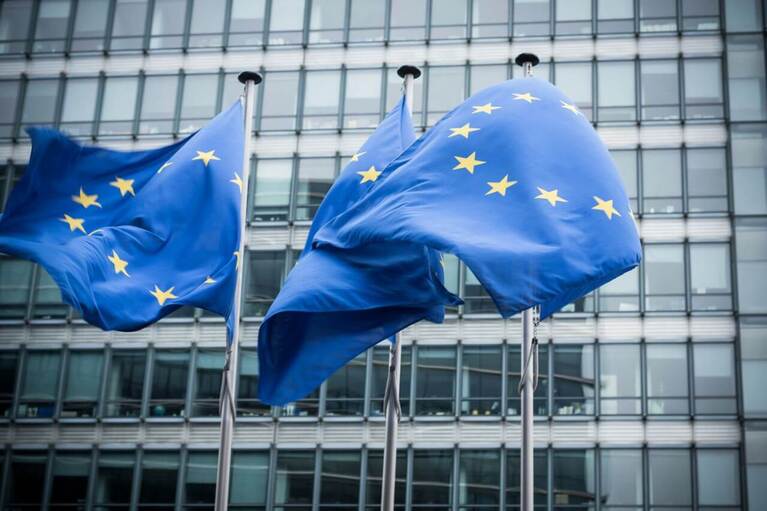After the euphoria of last week and an astonishing US jobs report for May, European markets have opened lower this morning, as markets temper some of their enthusiasm after three strong weeks of gains.
In the space of four weeks, we’ve seen history made as the US economy posted a record number of job losses in one month, only to be followed by a record number of jobs gains in the following month. Despite all of the enthusiasm over last month’s jobs report it doesn’t change the fact that US unemployment is still well above post-financial-crisis levels, and is likely to remain so for quite some time, with a margin for error in the unemployment numbers of around 3% due to uncertainty over how furloughed staff were counted by BLS officials.
The latest China trade numbers for May offered a fresh perspective to events, as the country’s trade surplus surged to a record high, amid the lowest imports number in four years, while exports were boosted by significant sales, as they were in April, by sales of PPE, and other medical equipment. Exports fell 3.3%, largely as a result of weak global demand, with the numbers flattered by PPE, while imports fell 16.7% in US dollar terms. Some of this decline in imports may well have been as a result of the lower US dollar value of commodities, however it still spoke to an economy that is still struggling to get back on its feet, three months after its own lockdown in February.
In Japan, the final Q1 GDP numbers showed an economic contraction of 2.2%, slightly more than expected, and slightly better than the 3.4% contraction seen in Q4. This morning latest German industrial production numbers for April continued the bad news from March, slumping by a record 17.9%, not unsurprisingly given that the economy was locked down for most of the month, along with the rest of Europe. The market continues to view all of these economic reports as rear-view mirror stuff, as optimism over economic reopenings continues to drive sentiment.
Despite all of this economic bad news, we’ve seen some big technical levels breached in the past few days, with the S&P 500, DAX and Nikkei 225 all breaking above their 200-day moving averages and moving above pre-economic-lockdown levels. Since the March lows, all three of these indices has rebounded by more than 40%, while the FTSE 100 has lagged behind somewhat, pushing off its March lows by just over 25%. A large part of the reason for the FTSE lagging behind is the recent sharp falls in the oil price, which has dragged on its big cap oil majors, as well as the presence of travel, leisure, retail and housebuilder stocks like IAG, IHG, Whitbread, easyjet and Taylor Wimpey, all sectors whose share prices have taken an absolute 'shellacking', though we have seen some recovery in recent weeks.
One sector that has done better than most in the past few weeks has been pharmaceuticals which has been at the forefront of the global response to the coronavirus pandemic, and in particular, AstraZeneca, which has seen its share price hit record highs in the past month. Hopes about a treatment and/or vaccine has helped drive gains in this particular area, with the UK company at the forefront, along with a host of US firms like Gilead Sciences, Moderna, Pfizer and Amgen the highest profile, with investors particularly focused on early optimism over the treatments and trials being conducted by Gilead Sciences and Moderna.
Optimism over remdesivir, an Ebola drug, has seen the Gilead Sciences share price move higher in recent weeks, having been endorsed as a coronavirus treatment by several countries in the past few weeks. At the weekend it has been reported that AstraZeneca, who recently received $1bn from the US government for vaccine research and also signed a deal with Oxford University to licence a successful vaccine trial, had been in touch with Gilead Sciences with respect to a merger. Any such deal, if agreed would mark the biggest pharmaceutical deal, beating last year’s Allergan/Abbvie and Celgene/Bristol Myers deals of over $80bn, coming in at a combined $230bn.
The healthcare industry has been at the centre of consolidation speculation for quite some time now, in the last two years we’ve seen a number of big deals play out, including the tie-up between Takeda and Shire which was a contentious one given the amount of debt involved in the structure of the deal. A lot of this consolidation has largely been driven by necessity, as patents expire the desire to develop new products, as well as shrinking margins, as pressure is brought to bear by politicians looking to lower healthcare costs. In 2018 the coming together of JP Morgan, Amazon and Berkshire Hathaway to create a healthcare company to help drive down patient care costs and make healthcare more affordable helped sharpen the focus on the sector in this regard.
Whether any deal between AstraZeneca and Gilead happens or not, and it appears that while an approach has been made talks haven’t gone beyond initial soundings, this story could well be the start of further consolidation in this sector. The obstacles to the deal are on the high side, particularly for AstraZeneca, which already has fairly high debt levels in the wake of last year's $6.9bn deal to buy Daiichi Sankyo Company for a promising breast cancer treatment. When looking a little closer the company is already struggling to cover its dividend from free cash flow, which makes any new acquisition fraught with risk, even with yields at already currently low levels. The shares have slipped lower in early trading.
Royal Dutch Shell and BP are among the early gainers on the back of the weekend Opec+ deal on oil production cuts. Oil prices have risen to new two-month highs in the wake of the weekend Opec+ deal to extend the 9 7m barrels a day production cuts until the end of June. What was particularly notable was the insistence by Russia and Saudi Arabia that serial rule breakers Iraq and Nigeria make up for their lack of compliance by cutting more heading into the rest of the year. This commitment is likely to be paper thin given Iraq’s domestic considerations, and the lack of an enforcement mechanism, however any non-compliance is likely to be overlooked if the recent recovery in prices continues on its current path.
Airline shares are also edging higher despite the UK’s two-week quarantine rules kicking in as from today. Ryanair has said it will ignore the rules, and along with easyJet and IAG has said it could sue the UK government over the policy, given concerns that it will deter people from flying, and further damage the industry which is already looking at thousands of job losses.
Lookers shares have slipped sharply this morning after the company said that its shares could well be suspended from July, saying it needs more time to investigate the problems in its accounts, which it reported at the end of last week. The company who initially said that the results would be published by the end of June, has now said its primary focus is getting its results out by the end of August.
US markets don’t appear to be matching the weakness seen in Europe today, with investors a little cautious ahead of the start of tomorrow' s US Federal Reserve rate meeting.
In company news, Slack shares slumped on Friday after its latest earnings report showed that revenue grew by 50% in the most recent quarter. Investors didn’t seem to like this as it was well below the numbers reported by Zoom, though the sacrifice of earnings guidance probably didn’t help either. With more people working remotely there was perhaps a sense that Slack should have performed better.
CMC Markets erbjuder sin tjänst som ”execution only”. Detta material (antingen uttryckt eller inte) är endast för allmän information och tar inte hänsyn till dina personliga omständigheter eller mål. Ingenting i detta material är (eller bör anses vara) finansiella, investeringar eller andra råd som beroende bör läggas på. Inget yttrande i materialet utgör en rekommendation från CMC Markets eller författaren om en viss investering, säkerhet, transaktion eller investeringsstrategi. Detta innehåll har inte skapats i enlighet med de regler som finns för oberoende investeringsrådgivning. Även om vi inte uttryckligen hindras från att handla innan vi har tillhandhållit detta innehåll försöker vi inte dra nytta av det innan det sprids.






